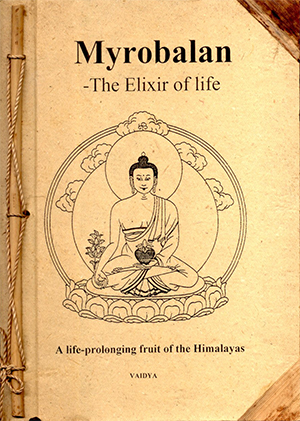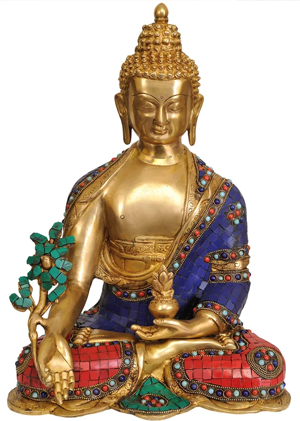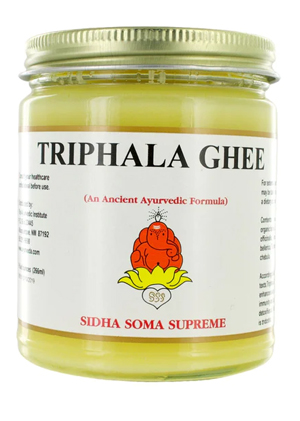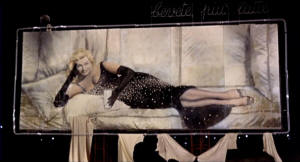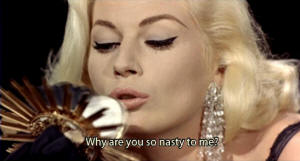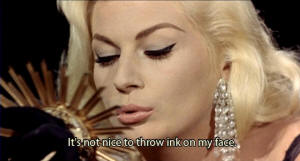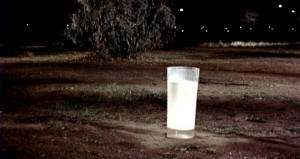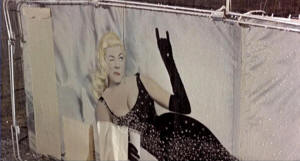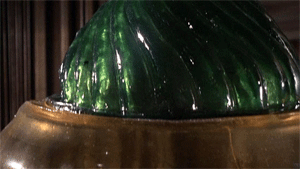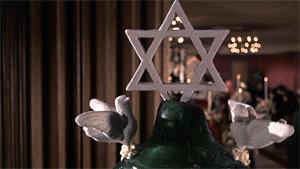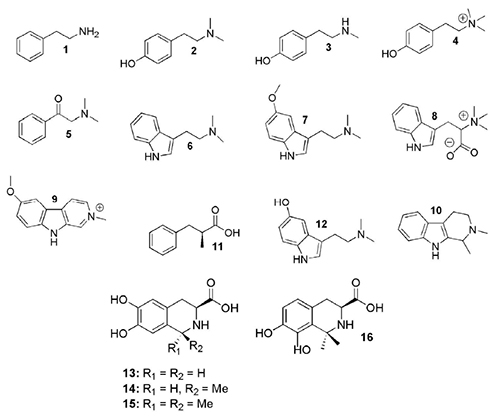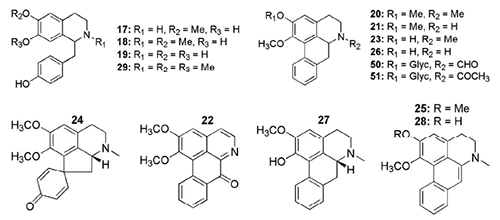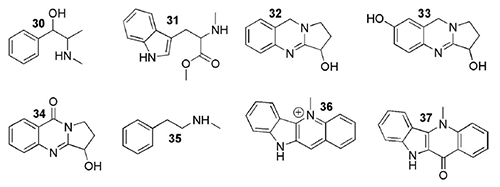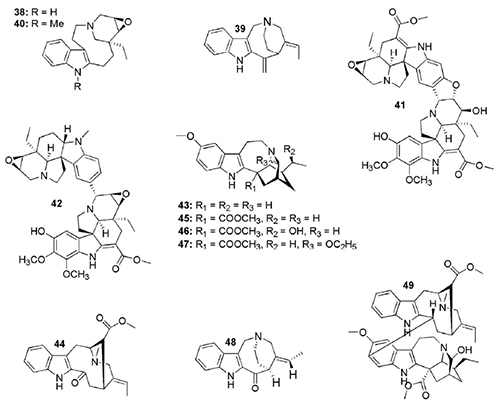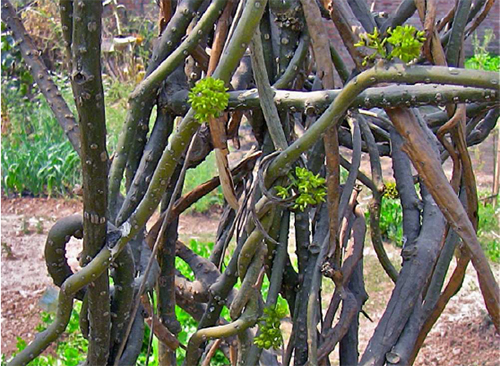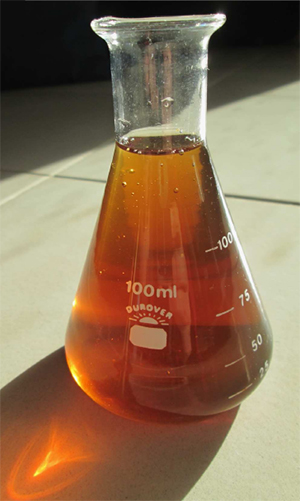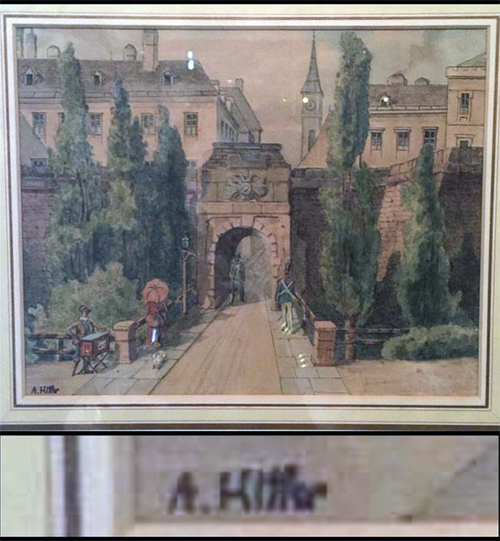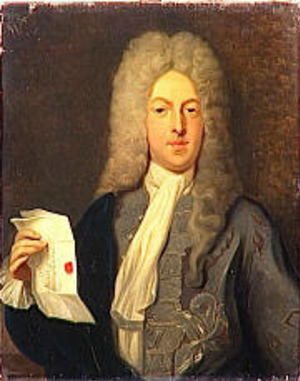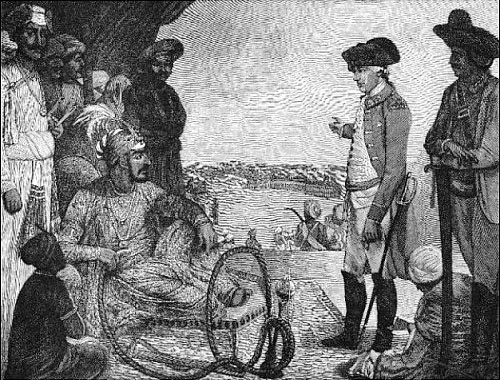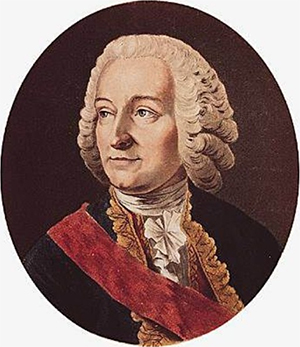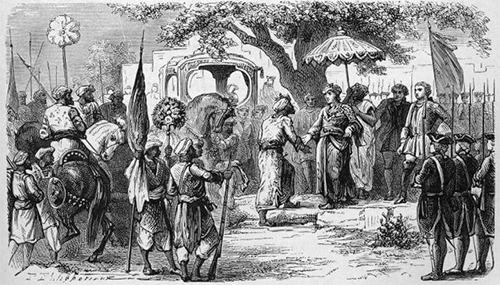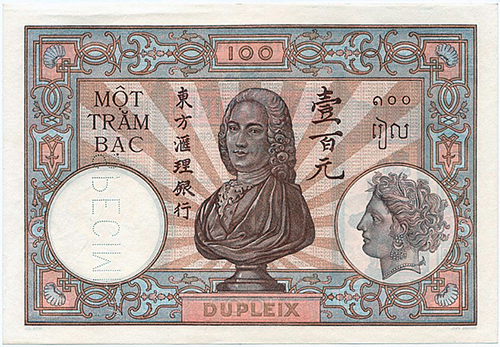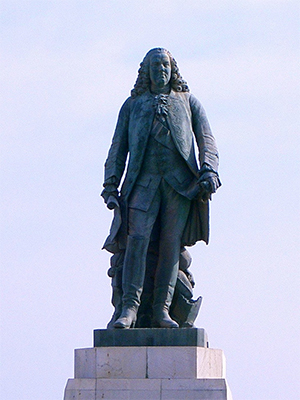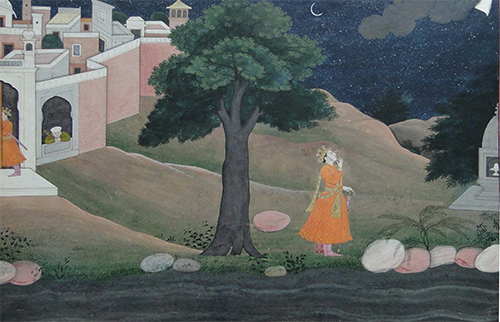by Wikipedia
Accessed: 3/21/23
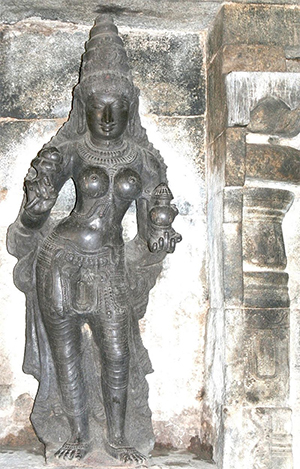
Mohini, the female form of Vishnu, holding the pot of amrita, which she distributes amongst all the devas, leaving the asuras without it. Darasuram, Tamil Nadu, India
Amrita (Sanskrit: अमृत, IAST: amṛta), Amrit or Amata in Pali, (also called Sudha, Amiy, Ami) is a Sanskrit word that means "immortality". It is a central concept within Indian religions and is often referred to in ancient Indian texts as an elixir.[1] Its first occurrence is in the Rigveda, where it is considered one of several synonyms for soma, the drink of the devas.[2] Amrita plays a significant role in the Samudra Manthana, and is the cause of the conflict between devas and asuras competing for amrita to obtain immortality.[3]
-- Myrobalan: The Elixir of Life - A life-prolonging fruit of the Himalayas, by Udo Stanglmeier (2002)
***
***
-- Sidha Soma Supreme Triphala Ghee (7.5 OZ). Ingredients; Ghee, Amla fruit (Emblica officials), Billerica Myrobalan fruit (Terminalia belerica), Chebulic Myrobalan fruit (Terminalia Chebula), by The Ayurvedic Institute
***
-- Soma, food of the immortals according to the Bower Manuscript (Kashmir, 6th century A.D.), by Marco Leonti and Laura Casu, 2014
Amrita has varying significance in different Indian religions. The word Amrit is also a common first name for Sikhs and Hindus, while its feminine form is Amritā.[4] Amrita is cognate to and shares many similarities with ambrosia; both originated from a common Proto-Indo-European source.[5][6]
Etymology
Amrita is composed of the negative prefix, अ a from Sanskrit meaning 'not', and mṛtyu meaning 'death' in Sanskrit, thus meaning 'not death' or 'immortal/deathless'.
The concept of an immortality drink is attested in at least two ancient Indo-European languages: Ancient Greek and Sanskrit. The Greek ἀμβροσία (ambrosia) is semantically linked to the Sanskrit अमृत (amṛta) as both words denote a drink or food that gods use to achieve immortality. The two words appear to be derived from the same Indo-European form *ṇ-mṛ-tós, "un-dying"[7] (n-: negative prefix from which the prefix a- in both Greek and Sanskrit are derived; mṛ: zero grade of *mer-, "to die"; and -to-: adjectival suffix). A semantically similar etymology exists for Greek nectar, the beverage of the gods (Greek: νέκταρ néktar) presumed to be a compound of the PIE roots *nek-, "death", and -*tar, "overcoming".
Amrita is repeatedly referred to as the drink of the devas, which grants them immortality. Despite this, the nectar does not actually offer true immortality. Instead, by partaking it, the devas were able to attain a higher level of knowledge and power, which they had lost due to the curse of the sage Durvasa, as described in the Samudra Manthana legend. It tells how the devas, after the curse, begin to lose their immortality. Assisted by their rivals, the asuras, the devas begin to churn the ocean, releasing, among other extraordinary objects and beings, a pitcher of amrita, held by the deity Dhanvantari.[8]
Brahma enlightens the devas regarding the existence of this substance:[9]
O Devas, in the northern division and on the northern bank of the ocean of milk there is a most excellent place called Amrita (nectar): so the wise say. Go there and being self-controlled practise hard austerities. There you will hear most sacred, purified words relating to Brahman grave like the muttering of clouds surcharged with water in the rainy season. That celestial speech is destructive of all sins and was spoken by the god of gods of pure soul. So long as your vow will not terminate you will hear that great universal speech. O gods, you have come to me and I am ready to grant you boons. Tell me what boon you do want.
— Harivamsa Purana, Chapter 43
When the asuras claim the nectar for themselves, Vishnu assumes the form of the enchantress Mohini, and her beauty persuades the asuras to crudely offer her the task of its distribution:[10]
Seeing that beautiful form, they were fascinated and were overwhelmed with the passion of love. Giving up their mutual struggle, they approached and spoke:
“O blessed lady! Take this pitcher of Nectar and distribute it amongst us. We are the sons of Kaśyapa; O lady with beautiful buttocks, make us all drink it (Nectar).”
Requesting her thus, they handed it over to the lady who was reluctant. She spoke, “No faith should be entertained in me, as I am a self-willed (i.e. wanton) woman. You have done an improper act. I shall, however, distribute it as per my will.” Though she told them so, those stupid ones said, “Do as you please”.
— Skanda Purana, Chapter 13
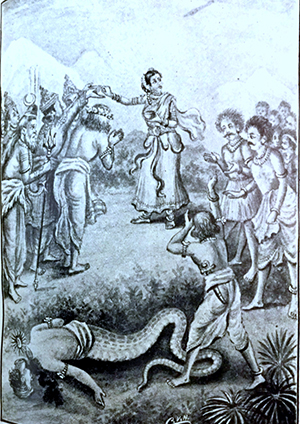
Vishnu took the form of the beauty Mohini and distributed the amrita to devas. When Svarabhānu tried to steal the amrita, his head was cut off.
When the danava Rahu disguised himself as a deva and sat in the clan's row to partake in consuming the nectar, Surya and Chandra alerted Mohini of his presence. Mohini sliced his head off with her Sudarshana Chakra, and continued to distribute the nectar to every single one of the devas, after which she assumed her true form of Narayana and defeated the asuras in a battle.[11]
Sikhism
In Sikhism, amrit (Punjabi: ਅੰਮ੍ਰਿਤ) is the name of the holy water used in Amrit Sanchar, a ceremony which resembles baptism. This ceremony is observed to initiate the Sikhs into the Khalsa and requires drinking amrit.[12] This is created by mixing a number of soluble ingredients, including sugar, and is then rolled with a khanda with the accompaniment of scriptural recitation of five sacred verses.
Metaphorically, God's name is also referred to as a nectar:
ਅੰਮ੍ਰਿਤ ਸਬਦੁ ਅੰਮ੍ਰਿਤ ਹਰਿ ਬਾਣੀ ॥
Amrit sabad amrit hari bāṇī.
The Shabda is Amrit; the Lord's bani is Amrit.
ਸਤਿਗੁਰਿ ਸੇਵਿਐ ਰਿਦੈ ਸਮਾਣੀ ॥
Satiguri sēviai ridai samāṇī.
Serving the True Guru, it permeates the heart.
ਨਾਨਕ ਅੰਮ੍ਰਿਤ ਨਾਮੁ ਸਦਾ ਸੁਖਦਾਤਾ ਪੀ ਅੰਮ੍ਰਿਤੁ ਸਭ ਭੁਖ ਲਹਿ ਜਾਵਣਿਆ ॥
Nānak amrit nāmu sadā sukhdātā pī amritu sabha bhukh lahi jāvaṇiā.
O Nanak, the Ambrosial Naam is forever the Giver of peace; drinking in this Amrit, all hunger is satisfied.[13]
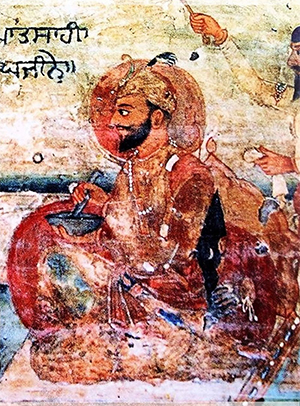
Old Sikh fresco art from the Akal Takht, Amritsar of Guru Gobind Singh preparing Amrit
Buddhism
Buddha is called as "Amata Santam" in Pali Literature.
Theravada Buddhism
According to Thanissaro Bhikkhu, "the deathless" refers to the deathless dimension of the mind which is dwelled in permanently after nibbana.[14]
In the Amata Sutta, the Buddha advises monks to stay with the four Satipatthana: "Monks, remain with your minds well-established in these four establishings of mindfulness. Don't let the deathless be lost to you."[15]
In the questions for Nagasena, King Milinda asks for evidence that the Buddha once lived, wherein Nagasena describes evidence of the Dhamma in a simile:
"Revered Nagasena, what is the nectar shop of the Buddha, the Blessed One?"
"Nectar, sire, has been pointed out by the Blessed One. With this nectar the Blessed One sprinkles the world with the devas; when the devas and the humans have been sprinkled with this nectar, they are set free from birth, aging, disease, death, sorrow, lamentation, pain, grief and despair. What is this nectar? It is mindfulness occupied with the body. And this too, sire, was said by the Blessed One: 'Monks, they partake of nectar (the deathless) who partake of mindfulness that is occupied with the body.' This, sire, is called the Blessed One's nectar shop."
— Miln 335[16]
Chinese Buddhism
Chinese Buddhism describes Amrita (Chinese: 甘露; pinyin: gānlù) as blessed water, food, or other consumable objects often produced through merits of chanting mantras.
Vajrayana Buddhism
See also: Pre-sectarian Buddhism § Ideas and practices
Amrita (Tibetan: བདུད་རྩི་, Wylie: bdud rtsi, THL: dütsi) also plays a significant role in Vajrayana Buddhism as a sacramental drink which is consumed at the beginning of all important rituals such as the abhisheka, ganachakra, and homa. In the Tibetan tradition, dütsi is made during drubchens – lengthy ceremonies involving many high lamas. It usually takes the form of small, dark-brown grains that are taken with water, or dissolved in very weak solutions of alcohol and is said to improve physical and spiritual well-being.[17]
The foundational text of traditional Tibetan medicine, the Four Tantras, is also known by the name The Heart of Amrita (Wylie: snying po bsdus pa).
The Immaculate Crystal Garland (Wylie: dri med zhal phreng) describes the origin of amrita in a version of the samudra manthana legend retold in Buddhist terms. In this Vajrayana version, the monster Rahu steals the amrita and is blasted by Vajrapani's thunderbolt. As Rahu has already drunk the amrita he cannot die, but his blood, dripping onto the surface of this earth, causes all kinds of medicinal plants to grow. At the behest of all the Buddhas, Vajrapani reassembles Rahu who eventually becomes a protector of Buddhism according to the Nyingma school of Tibetan Buddhism.
Inner Offering (Wylie: Nang chod, Chinese: 内供) is the most symbolic amrita offering assembly, and the Inner Offering Nectar Pill (Wylie: Nang chod bdud rtsi rilbu, Chinese: 内供甘露丸) is a precious and secret medicine of Tibetan Buddhism, which are only used internally for higher-ranking monks in Nyingma school. Its ingredients including Five Amrita and Five Meat, which represents five buddhas, and five elements respectively. According to Tantras of Chakravarti, and Tantras of Vajravārāhī, a ceremony needs to be held for melting and blessing the Inner-Offering Nectar. Five Nectar needs to be arranged in four directions: yellow excrement in the east, green bone marrow in the north, white semen in the west and red blood in the south; blue urine is placed in the center. Four Nectar should come from wise monks and the ova should be collected from the first menstruation of a blessed woman. The Five Meats are arranged similarly, meat of black bull in the southeast, the meat of the blue dog in the southwest, the meat of the white elephant in the northwest, the meat of the green horse in the northeast, and the meat of a red human corpse in the center. After the ceremony, these ingredients will transform into a one taste (ekarasa) elixir, which bestows bliss, vitality, immortality and wisdom. Actual modern practitioner will take a 'synthesized essence' of the Nectar Pill and combined it with black tea or alcohol, but mostly the "Nectar Pill" are derived from plants.[18]
See also
Look up amrita in Wiktionary, the free dictionary.
• Ameretat
• Ambrosia
• Elixir of Life
• Panchamrita
• Peaches of Immortality
• Potion
• Soma
• Traditional Tibetan medicine
• All pages with titles beginning with Amrit
• All pages with titles beginning with Amrut
References
1. "amrita | Hindu mythology | Britannica". http://www.britannica.com. Retrieved 2021-11-13.
2. "Soma: The Nectar of the Gods". History of Ayurveda. Retrieved 2021-11-13.
3. Pattanaik, Devdutt (February 27, 2016). "Good deva-bad asura divide misleading". The Times of India. Retrieved 2021-11-13.
4. "BBC - Religions - Sikhism: Amrit ceremony". http://www.bbc.co.uk. Retrieved 2021-11-13.
5. Walter W. Skeat, Etymological English Dictionary
6. "Ambrosia" in Chambers's Encyclopædia. London: George Newnes, 1961, Vol. 1, p. 315.
7. Mallory, J. P. (1997). "Sacred drink". In Mallory, J. P.; Adams, Douglas Q. (eds.). Encyclopedia of Indo-European Culture. Taylor & Francis. p. 538. Mallory also connects to this root an Avestan word, and notes that the root is "dialectally restricted to the IE southeast".
8. Gopal, Madan (1990). K.S. Gautam (ed.). India through the ages. Publication Division, Ministry of Information and Broadcasting, Government of India. p. 66.
9. http://www.wisdomlib.org (2020-11-14). "Brahma Instructs the Devas to Go to Vishnu [Chapter 43]". http://www.wisdomlib.org. Retrieved 2022-08-03.
10. http://www.wisdomlib.org (2020-03-05). "Gods Drink the Nectar [Chapter 13]". http://www.wisdomlib.org. Retrieved 2022-08-03.
11. http://www.wisdomlib.org (2020-03-05). "Gods Drink the Nectar [Chapter 13]". http://www.wisdomlib.org. Retrieved 2022-08-03.
12. "Taking Amrit: Initiation". pluralism.org. Retrieved 2021-11-13.
13. Guru Granth Sahib, page 119
14. "All About Change", by Thanissaro Bhikkhu. Access to Insight (Legacy Edition), 5 June 2010, http://www.accesstoinsight.org/lib/auth ... hange.html
15. "Amata Sutta: Deathless" (SN 47.41), translated from the Pali by Thanissaro Bhikkhu. Access to Insight (Legacy Edition), 17 February 2012, http://www.accesstoinsight.org/tipitaka ... .than.html
16. "The Blessed One's City of Dhamma: From the Milindapañha", based on the translation by I.B. Horner. Access to Insight (Legacy Edition), 30 November 2013, http://www.accesstoinsight.org/lib/auth ... bl130.html
17. Dutsi, A Brief Description of the Benefits of the Sacred Ambrosial Medicine, The Unsurpassable, Supreme Samaya Substance that Liberates Through Taste.
18. The handbook of Tibetan Buddhist symbols, Robert Beer. ISBN 1590301005, Boston, MA. :Shambhala, 2003.
Sources
• Dallapiccola, Anna L. Dictionary of Hindu Lore and Legend. ISBN 0-500-51088-1
External links
• Ayurvedic Rasayana – Amrit
• Immortal Boons of Amrit and Five Kakars
• Depictions in stone at Angkor Wat and Angkor Thom (Cambodia) of how the gods dredged amrit from the bottom of the ocean
• https://web.archive.org/web/20110110035 ... rowley.htm
• https://web.archive.org/web/20110707061 ... brosia.htm
************************
Offer therefore to Indra this (soma), as fiery as he himself can be; this (soma), ornament of sacrifice, joy of mortals, love of (god) who descends towards us, and gives us happiness....
Indra's breast, thirsty with soma, must always be filled with it: as the sea is always (swollen with water), so the tongue is constantly moistened with saliva....
In this place where, like two djaghanas, appear the two basins intended for the soma, Indra, come and drink the juice prepared in the mortar....
Whatever work you are employed in every house, O mortar! resounds in a brilliant manner, like the drum of the victors.
O pestle! at your extremity the air blows with force. O mortar! prepare Indra's drink.
O mortar! o pestle! instruments of sacrifice, you who prepare the dishes (of the gods), separate yourselves, unite like the jaws which grind the food.HUNG. In the mortar of the blazing wrathful female,
By the beat of the vajra hammer,
Even gods can be slain.
-- -- The Miraculous Activity Sadhana of Vajrakilaya, the Razor Which Destroys at a Touch, by His Holiness Dudjom Rinpoche, Jigdrel Yeshe Dorje
Noble wooden instruments, with these noble soma makers, you prepare for us today for Indra a drink as sweet as honey.
Thou, (Haristchandra), carry away the soma falls into the basin; pour it on the filter, and let the cowhide receive it ...
O Soma, you who are like the immortal prince (of this feast), hear (these prayers) which celebrate your glory!...
Son of Canwa, the libations, treasure of the resplendent (god), are arranged in their basin. (O Aswins), where is your form?
However the soma is colored, the sun begins to turn golden. I see it in Agni's tongue turning black...
The intoxicating soma is prepared, and the priest adds to it the harmony of his songs....
Our joyous libations, poured out in your honor and carried on the wings of the hawk (poetic), have intoxicated your heart. Strengthened by these offerings, (god) armed with lightning, in the midst of the (celestial) waves, you have vigorously struck Vritra, thus consecrating your kingship....
1. O Soma, your services are appreciated by our spirit. You lead us in the best way. Under your direction, o god called Hindu, our fathers, pious and wise, obtained the favor of the gods.
2. O Soma, holy in holy things, strong in strong things, generous in bountiful things, abundant in abundant things, you are opulent, you are great, you are the preceptor of men.
3. Your works are those of the royal Varouna; your influence, o Soma, is wide and deep. Pure like lovable Mitra, like Aryaman, o Soma, you give increase (to beings).
4. The influence that you possess in heaven, on earth, on images, plants and waters, O Soma, gentle and clement king, deign to exercise it in our favor, and accept our holocausts!
5. O Soma, you are the master of the saints, you are king and conqueror of Vritra, you are the agent of our happiness.
6. Death shall not overtake us, (if) thy desire is that we live, o Soma, thou who lovest our praises, and art Vanaspati.
7. O Soma, you give to the man who offers the sacrifice, whether young or old, a fitting share in the goods of life.
8. King Soma, defend us against all the wicked; the friend (of a god) such as you cannot perish.
9. O Soma, grant us these protective aids with which you surround your faithful.
10. Accept this sacrifice and this hymn, and come, O Soma, to increase our well-being!
11. By our songs we know how to increase your glory, o Soma! Come visit us kindly.
12. O Soma, increase our wealth, ward off disease from us, enlarge our treasures, double our opulence; be a true friend to us!
13. Soma, be happy in our hearts, like the cow in the pasture, like the father of the family in his house.
14. Divine Soma, a wise and benevolent (god), (like you), attaches himself to the mortal who puts his happiness in your friendship.
15. O Soma, deliver us from imprecation! keep us from evil! be a diligent friend to us!
16. Believe then, o Soma! appear in all the fullness of your strength, and gather in you all good things!
17. Believe, blessed Soma, and adorn yourself in all your splendours! Be a friend who opens to us the source of abundance and glory!
18. Conqueror of your enemies, may the sweetness, abundance and strength of food be united in you! Crescent, o Soma, for the immortal ambrosia, become for us in heaven the treasury of the most precious food!
19. All these goods, which are offered here in holocaust, come from you: that (Agni) envelops (with his flames) our sacrifice! O Soma, you who increase our opulence and who make our salvation, you who are the strength of our heroes and the death of our enemies, come and visit our homes.
20. To him who honors him, Soma gives cows, light steeds, courageous and skilful sons, distinguished in their household, in the sacrifices, in the assemblies, subject to their father.
21. O Soma, let us be happy with a (god like you), who, invincible in war, fulfills our wishes in battle, who gives us prosperity with the waters (of the rain), who protects the sacrifice, and who, growing in the midst of offerings, possessor of a brilliant abode, shows himself glorious and triumphant.
22. O Soma, it is you who have produced all the plants, the waters and the cows, you who have extended the vast sky, you who in your light buried the darkness.
23. Mighty God, o Soma, may your divine prudence grant us the share of riches (which we desire)! Fight for us; no one can fight you. Thou art lord of might, and reigneth over both parties: give us superiority in battle....
4. Agni and Soma, we know your power. It burst, when you took away from Pani the (celestial) cows of which he was the guardian; when you killed the son of Brisaya, and caused the unique light (of the sun) to shine for all.
5. It is you, Agni and Soma, who, uniting your efforts, have placed in heaven these sparkling (stars); you, Agni and Soma, who delivered the chained rivers from the odious imprecation launched against them.
6. Matariswan comes from heaven to animate one of you (with his breath); the other is drawn from the mortar by the (poetic) hawk. It is you, Agni and Soma, who, growing through prayer, have, for the sacrifice, founded a large site.
7. Agni and Soma, come and take your share of our holocaust, and deign to have it as a pleasure. Beneficent (gods) and fortunes, be our protectors, and fill with happiness the one who sacrifices you.
8. Agni and Soma, protect the piety of (man) who honors the gods with a devoted soul and libations of butter; keep him from evil, and grant great prosperity to the faithful people.
9. Agni and Soma, you to whom we address the same offerings and the same invocations, receive our prayers: you are great among the gods.
10. Agni and Soma, give glory and wealth to him who pours this sacred butter in your honor.
11. Agni and Soma, may our burnt offerings be pleasing to you! come together with us.
12. Agni and Soma, take our couriers under your protection; let our cows multiply, and give their milk for our libations. Grant us strength with wealth. Let opulence become the price of our sacrifice!...
Let us pour the soma in honor of the powerful, liberal and generous (god), who possesses the force of justice, who, noble hero, knows, like the robber of the highway, to lay an ambush for the impious, and distribute his remains....
1. O Indra and Agni, on this magnificent chariot from the top of which you see all the worlds, come together, and drink from the soma which has been prepared.
2. The soma that I offer you to drink is as abundant as this universe is wide, deep, extended. O Indra and Agni, suffice your desires!
3. You have associated your names with glory. Together you killed Vritra. Together, o Indra and Agni, come and sit (at our sacrifice); Generous gods, taste the soma poured out to you by the father of the family.
4. So the fires are kindled for you; the butter, the cups and the bed of cousa, are prepared in your honor; libations are lavished; o Indra and Agni, come here for our happiness.
5. O Indra and Agni, these prowess, these vigorous manifestations, these ancient testimonies of a happy friendship, deign to renew them for us, and drink of the soma which has been prepared!
6. I have already said, honoring you with respect, that this soma was intended for those (gods) who are our life. Relying on my word, come, and drink from the soma which has been prepared....
(The victorious god) has just appeared: may he excite our transports of joy. It shines like the sun following the dawn. That offered by us without reserve, and accompanied by our songs, the soma springs from the sacred spoon onto the hearth....
Notes:
These liqueurs were made with grains that were allowed to ferment, or with the juice of asclepias acida, called soma....
Before the day of the sacrifice, the head of the family had to send to the mountains to fetch the soma (asclepias acida or sarcostema viminalis), collect the wood, and make all the arrangements for the offerings and the meal...
The chamu or tchamasa is a vase which contains the soma: it is also the spoon with which it is served. Sometimes this word is used for the skin filter through which the drink is passed to clarify it, and perhaps also for the press....
The expression is gravahasta, lapidem manu tenens; and the word graven no doubt designates the earthen vessels used in the sacrifices. It could well also be the mortars or the stones which were used to clean the barley or to crush the soma: however the mortar seems to have been made of wood....
Soma is not the god Lunus; it is the libation of the personified soma....
Or three times seven different offerings. On the occasion of this verse, the commentator explains that, in the vase of sacrifice, there are three kinds of offerings, which he qualifies as upper offerings, middle offerings, lower offerings. He also distinguishes three classes (varga) of sacrifices: the haviryadjnas, the pacayadjnas, the somasansthanas. He cites sacrifices belonging to each of these three classes, sacrifices in which the Ribhous were probably invoked. Elsewhere he says that there are seven offerings called hotra, and accompanied by the exclamation vachat....
Soma is libation personified. These waters here in question are sometimes taken for the different kinds of libations, and I think that all these invocations are addressed to the Waters considered in the sacrifice. Thus, in verse 17, when the poet speaks of the Waters which precede the birth of the Sun (Oupasourye), and of those which accompany it, it seems to me that he designates the libations of the morning and those of the day. In verse 18, the cows quenched by these Waters are the rays of Agni....
The Soma, pressed by the pestle in the mortar, was thrown into a basin (tchamou); it was poured over a filter, which was a pierced cowhide....
The commentator thinks that it is a question here of Soma, god of the moon, and of one of the constellations considered as his wives. I believe that Soma is the libation, and his beloved is the flame of Agni. These foods with which the chariot of the Aswins is loaded are either the offerings that are made to these gods, or the goods with which they fill men....
Soma, as we have already seen, is the libation personified: it is also given the name Hindu. The same two names still apply to the moon....
A legend tells that, in a sacrifice which is going to be celebrated in honor of the gods, is born first (that is to say is brought) Agni, the fire of the sacrifice, and, secondly, the mortar in which the seeds are crushed; in the third place, another person is born: it is Soma or the libation, which takes the name of Trita. Trita is in the cup of the sacrifice: the Asuras arrive, and place guards to prevent the consummation of the sacrifice. Trita kills these guards....
The text bears the word Syena, which is the name of the hawk, and at the same time the name of a poetic meter. The commentary indicates this meaning by representing the soma as the door on the wings of the Gayatri. Without this indication from the commentator, I would have heard that the soma is carried towards Indra by Agni, who has the swiftness of a hawk....
I don't think this hymn is dedicated to the Moon; it is intended to celebrate the god of the libation, called Soma and Hindu, names which have also been given to the Moon. The power of the Soma is that of the sacrifice itself....
In the midst of the songs of sacrifice, the Soma passes from the mortar into the cups....
The commentator supposes that this hymn is by Coutsa, or rather by a certain Richi called Trita, son of the Waters: the hymn was composed, he says, at a time when the latter, rushing into a well, could see the rays of the moon. We have already seen (see reading IV, note 36) a legend about the birth of the character known as Trita. Here, it is said that three Richis, Ecata, Dwita and Trita, traveled together in a forest; they came to a well. After having refreshed themselves, the companions of Trita threw him into this well, and seized his effects. Another legend considers Ecata, Dwita and Trita as one and the same character who is reborn up to three times. The meaning of this hymn can be allegorical; for Trita is the personified soma; he is in the well, that is to say in the basin which contains the libation; he aspires to get out of it, and addresses his complaints to all the gods. It even seems to me, from its name, that Trita must be especially the third libation, or that of the evening. After having been Ecata on first libation, Dwita or second libation, this character aspires to become Trita. I have heard in this sense the details of this evening hymn. Such is the position of things in the first stanza: the night is coming, and the moon is shining in the sky. We no longer see the rays of the sun. The Richi or rather Trita speaks....
Trita, being the soma personified, dwells in the place of sacrifice, where Agni shines with the seven rays....
The daughter of the Sun or of the Day (see reading VIII, hymn 1, verse 1), is the Night. The commentator relates that the daughter of the Sun, whom he names Sourya, was destined by him for Soma. The other gods also asked for her in marriage. They agreed that it would be the price of a race whose goal would be the sun; the Aswins were the victors, and put Sourya on their chariot. The passage we are explaining seems to indicate that the very daughter of the Sun, like another Hippodamia, ran the luck of the fight, and was victorious with the aid of the horse of the Aswins....
Section Two
O Indra, drink this limpid soma which the pestle has expressed from the treasure (from the seed), like the bull thirsty, yea, like the bull drinks (water) from the well. That to this source of intoxication (divine) which excites you and sustains you, your horses bring you, as well as the Days, yes, as well as the Days (bring) the Sun....
For you this soma has been pressed; for you it has been purified, and in the vase which contains it it takes on wonderful colors; yes, it has brilliant colors. This is what the children of Ayou and the Devas (mortals) offer you. O Vayou, bring your couriers; come join us; yes, pleasure is calling you, come join us.
With your hundred, with your thousand couriers, o Vayou, come and enjoy our sacrifice; yes, come and enjoy our holocausts. To you this solemn and shining soma in the rays of the sun! (Your servants) handed over to the priests (those drinks), which for you, o Vayou, they prepared with eager zeal; yes, with zealous eagerness....
O horse, you are Yama, you are Aditya, you are Trita, by mysterious agreement. At marked moments you find yourself sprinkled with soma: for you are recognized in the sky as three stations....
This sacred enclosure is the beginning of the earth; this sacrifice is the center of the world. This soma is the seed of the fruitful steed. This priest is the first patron of the (holy) word....
But I just saw thick smoke coming out of the lower part of the hearth. The brilliant soma was spread on the fire. These were the first duties to be fulfilled....
See, Indra, this sacrifice prepared for the gods, this meeting, these songs, this soma. O Sacra, come and sit on this lawn that strews the earth, and drink (of our liqueurs). Bring your Azure Horses here....
[At the Aswins] Your horses roam the worlds; your chariot soars through the air. Your wheels are overloaded (with goods); and when you come to drink the soma, you unite with the Auroras....
O Soma, if we have given you the pure substance of our cows, become Vatapi; puff yourself up for us.
O plant (which must serve for our libations), take the form of our (sacred) cakes; broad, salutary, airy, become Vatapi; puff yourself up for us....
1. (The being) who walks is as if stopped within dark vapours. The Darkness enveloped the two luminous torches.
2. But behold, (the Dawn) comes, and destroys this Darkness; it comes from the extremity of the sky, it strikes them down and reduces them to dust.
3. The Saras, the Cousaras, the Darbhas, the Seryas, the Mondjas, the Verinas, everything was invisible, and enveloped in this Darkness.
4. The cows were retired to their stables, the hosts of the forests to their lairs; the men were numb, all enveloped by this Darkness.
5. But these Darknesses have been betrayed by the morning, like thieves. O Darkness, you saw the light, and you arose from your sleep.
6. You have Heaven for father, Earth for mother, Soma for your brother, Aditi for sister. O Darkness, you have seen the light; get up, and return happily (to your stay).
7. Mutilated, cut to pieces, tapered like needles, go, o Darkness, and deliver us from your presence!
8. In the east the Sun rises in plain sight; he kills the Darkness, he devours all these black vapors, issued from malevolent geniuses.
9. Yes, the Sun rises to destroy many (evils); it is Aditya coming with the Winds to show himself to all, and kill the Darkness."The 'pure substance' or the 'elixir' ... obtained from the entrails of Mother Nature, is in alchemy nothing other than the gynergy so sought after in Tantrism. Just like the Tantric, the alchemist thus draws a distinction between the 'coarse' and the 'sublime' feminine. After the destruction of the 'dark mother', the so-called nigredo, the second phase follows, which goes by the name of albedo ('whitening'). The adept understands this to mean the 'liberation' of the subtle feminine ('pure substance') from the clutches of the coarse 'dragon' (prima materia)....The master has thus transformed the black matter, which for him symbolizes the dark mother, following its burning or cutting up in his laboratory into an ethereal 'girl' and then distilled from this the 'pure Sophia', the incarnation of wisdom, the 'chaste moon goddess', the 'white queen of heaven'. One text talks 'of the transformation of the Babylonian whore into a virgin' (Evola, 1993, p. 207)....
Why are you so nasty to me?
It's not nice to throw ink on my face.Now this transmutation is not, as a contemporary observer would perhaps imagine the process to be, a purely spiritual/mental procedure. In the alchemist’s laboratory, some form of black starting substance is in fact burned up, and a chemical, usually liquid substance really is extracted from this material, which the adept captures in a pear-shaped flask at the end of the experiment. The Indians refer to this liquid as rasa, their European colleagues as the 'elixir'. Hence the name for Indian alchemy — Rasayana.
Even though all the interpreters in the discussion of the alchemic 'virgin image' (the subtle feminine) are of the unanimous opinion that this is a matter of the spiritual and psychological source of inspiration for the man, this nevertheless has a physical existence as a magical fluid. The 'white woman', the 'holy Sophia' is both an image of desire of the masculine psyche and the visible elixir in a glass. (In connection with the seed gnosis we shall show that this is also the case in Tantrism.)
This elixir has many names and is called among other things 'moon dew”' or aqua sapientiae (water of wisdom) or 'white virgin milk'. The final (chemical) extraction of the wonder milk is known as ablactatio (milking). Even in such a concrete point there are parallels to Tantrism: In the still to be described 'Vase initiation' of the Kalachakra Tantra, the ritual vessels which are offered up to the vajra master in sacrifice, represent the wisdom consorts (mudras). They are called 'the vase that holds the white [the milk]' (Dhargyey, 1985, p.. Whatever ingredients this 'moon dew' may consist of, in both cultural circles, it is considered to be the elixir of wisdom (prajna) and a liquid form of gynergy. It is as strongly desired by every European adept as by every Tibetan tantric master....We can thus state that, in Tantrism, the relation between the real woman (karma mudra) and the imaginary spirit woman (inana mudra) is the same as that between the dark mother (prima materia) and the 'chaste moon goddess' (the feminine life-elixir or gynergy) in European alchemy. Therefore, the sacrifice of karma mudra (prima materia), drawn usually from the lower classes, and her transformation into a Buddhist 'goddess' (inana mudra) is an alchemic drama. Another variation upon the identical hermetic play emerges in the victory of the vajra master over the dark horror dakini (prima materia) and her slaughter, after which she (post mortem) enters the tantric stage as a gentle, floating figure — as a nectar-giving 'sky walker' ('the chaste moon goddess'). The witch-like cemetery whore has transformed herself into a sweet granter of wisdom.
-- "The Shadow of the Dalai Lama," by Victor and Victoria Trimondi
-- Temptations of Dr. Antonio (Le Tentazioni Del Dottor Antonio), directed by Federico Fellini, Starring Anita Ekberg and Peppino De Felippo
10. (Couchoumbhaca speaks). "Let these vapors to my voice extend over the Sun, like those tents with which the dwelling of the man who distributes sweet liquors is covered. Like the Sun, let us be immortal! The (god) whom carry azure steeds, of these waves united to the Sun in the celestial abode, formed you, sweet liquor of immortality!
11. "Like a magnificent bird, (he rises) and absorbs your vapours. Like the Sun, let us be immortal! The (god) carried by azure steeds, of those waves united to the Sun in the celestial abode, formed you, sweet liquor of immortality!...
He who deserves the prayer of the rich and the poor, of the priest and the poet who begs him; who, distinguished by his beautiful face, is the guardian of the soma presented to him by the (sacred) cup: peoples, this is Indra....
[To Indra] 1. The (rainy) season is the mother of the plant (of the soma); (the plant) is born and grows rapidly in the midst of the waters with which it is surrounded. It grows branches that fill with juice. But what gives the soma this increase is what must first be sung.
2. Streams of juice flow from all sides, and go to the same vase which contains them. They all follow the same path. O you who have done this, it is you who must first be sung.
3. A man accompanies the offerings with his voice; another comes who undertakes the works, and who consumes the articles of the sacrifice; by the orders of a third everything is executed. O you who have done this, it is you who must first be sung.
4. The assistants share with the various beings the happy fruits of the sacrifice. They go after wealth, which becomes for them like too heavy a burden. (Agni), skilled in breaking the bonds of things, crushes under his teeth the offerings of the father of the family. O you who have done this, it is you who must first be sung.
5. You who discovered the earth in the face of heaven; you who, by the death of Ahi, gave rise to the (celestial) rivers; you, divine being, whom the Devas have formed with their praises, as with the waters one forms the food (of men), it is you who must be sung.
6. You who give food; who, from the moistened (stem) which you have swollen, draws grain as sweet as honey; who are a treasure to your servant, it is you who must be sung.
7. You who, to manifest your supreme generosity, have produced salutary flowers and plants; who have formed the various lights of heaven; who has spread wide spaces like you, it is you who should be sung....
Priests, offer Indra the happy (soma); purified by the fire of the venerable (Agni), let him be presented to (a god) no less venerable. Indra loves what comes from your hands: give him the intoxicating soma....
During the tricadrous, may the great, the resplendent (Indra) come, at his pleasure, with Vishnu, take our barley offerings and drink the soma! Let him get drunk on our beverages to be able to accomplish his great work, (this god) vast and great! May this holy and divine liquor unite with the holy and divine Indra!...
From Soma and Pouchan are born Wealth, and Heaven, and Earth. Hardly had these two guardians of the world seen the light of day, than the Devas surrounded them with their pious ambrosia.
That (the Devas) honor these gods at their birth; may these gods dispel the abhorred darkness. That with Soma and Pouchan, Indra produce within the young cows (celestes) an abundant milk....
Get abundant soma, as sweet as honey, offered to you by the children of Sounahotra. Drink this intoxicating and happy (liquor)....
-- Rig-Veda Or Book Of Hymns, Translated from Sanskrit by M. Langlois, Member of the Institut, 1848

